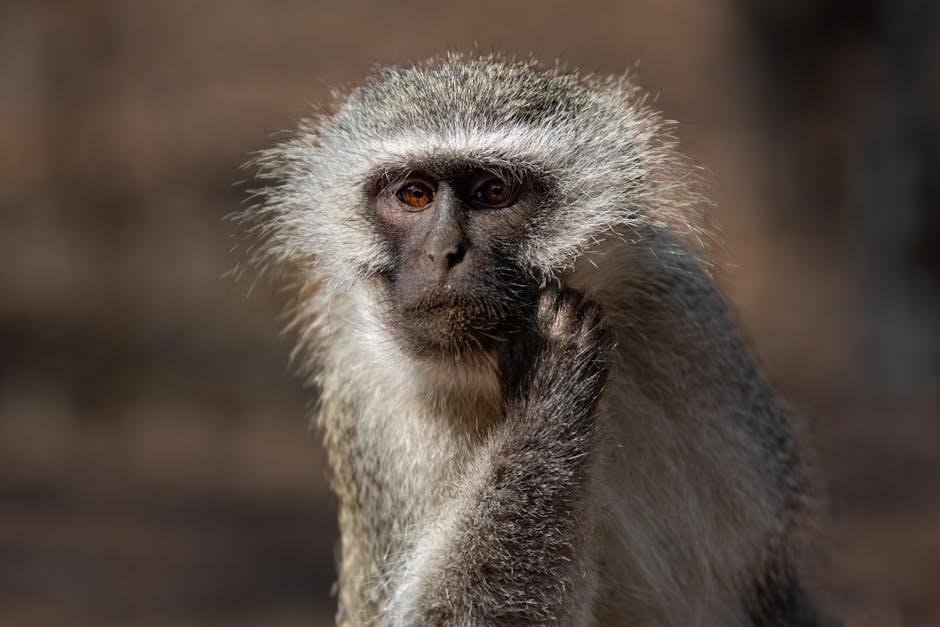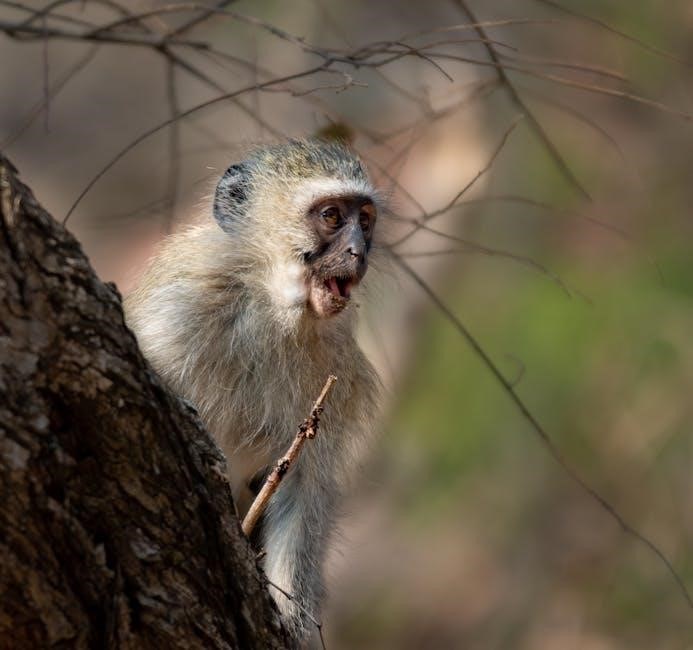First published in 1996, Into the Wild is a gripping non-fiction book by Jon Krakauer that recounts the tragic tale of Chris McCandless, a young man who abandoned materialism to seek adventure in the Alaskan wilderness․ The story, based on real events, explores McCandless’s journey of self-discovery and the ultimate cost of his ideals․ Krakauer’s vivid storytelling captivates readers, blending deep insight with a haunting narrative that has resonated globally, sparking debates about freedom, risk, and the human spirit․
Background of the Book
Into the Wild originated from a 9,000-word article Jon Krakauer wrote for Outside magazine, detailing the discovery of Chris McCandless’s body in Alaska․ Intrigued by McCandless’s story, Krakauer expanded the piece into a full-length book, exploring themes of adventure, self-discovery, and the allure of the wilderness․ The book delves into McCandless’s journey, challenging simplistic media portrayals and offering a deeper understanding of his motivations and the tragic circumstances of his death․
Popularity of the PDF Version
The PDF version of Into the Wild by Jon Krakauer has gained immense popularity due to its accessibility and convenience․ Readers appreciate the ease of carrying the book on digital devices, enabling on-the-go reading․ The format’s compatibility with various platforms and the ability to share it widely have contributed to its widespread use․ Additionally, the affordability and ease of obtaining the PDF, especially in regions with limited access to physical copies, have made it a preferred choice for many․ The themes of adventure and self-discovery resonate deeply, further enhancing its appeal in the digital age․
Key Themes and Messages
Into the Wild explores themes of self-discovery, rebellion against societal norms, and the allure of nature․ Jon Krakauer delves into Chris McCandless’s rejection of materialism and his quest for authenticity, highlighting the tension between individualism and the comforts of civilization․ The book also examines the dangers of unchecked idealism and the human need for connection, leaving readers to reflect on the fine line between adventure and peril, freedom and isolation, and the enduring call of the wilderness․
Jon Krakauer: The Author Behind the Story
Jon Krakauer is a renowned investigative journalist, mountaineer, and author, known for his gripping narratives on adventure and human endurance․ His work, including Into the Wild and Into Thin Air, showcases his passion for the wilderness and his ability to weave compelling stories, often blending personal reflection with meticulous research․ Krakauer’s writing captures the essence of exploration and the complexities of the human spirit, earning him a reputation as a masterful storyteller․
Biography of Jon Krakauer
Jon Krakauer, born on April 12, 1954, in California, is a celebrated American journalist, author, and mountaineer․ His early fascination with the wilderness shaped his career, blending adventure with storytelling․ Krakauer earned a degree in Environmental Studies, which influenced his writing on nature and human endurance․ His investigative journalism and books like Into the Wild and Into Thin Air have earned him acclaim, solidifying his reputation as a masterful storyteller of true-life adventures and tragedies․
Krakauer’s Motivation for Writing the Book
Jon Krakauer’s motivation for writing Into the Wild stemmed from a deep personal connection to Chris McCandless’s journey․ Intrigued by the mystery surrounding McCandless’s death, Krakauer sought to uncover the complexities of his character and the ideals that drove him․ By delving into McCandless’s story, Krakauer aimed to explore universal themes of self-discovery, rebellion, and the human quest for meaning, resonating with readers’ own struggles and aspirations․

Chris McCandless: The Protagonist
Chris McCandless was a young, idealistic man who embarked on a journey of self-discovery, rejecting materialism for a life of simplicity and freedom in the wilderness․
Who Was Chris McCandless?
Chris McCandless was a well-educated, adventurous young man from a dysfunctional family․ After graduating from Emory University in 1990, he donated his savings to charity, abandoned his car, and hitchhiked across America․ Adopting the name “Alexander Supertramp,” he worked odd jobs and lived minimally, fueled by a desire for freedom and self-discovery․ His journey ultimately led him to Alaska, where he ventured into the wilderness, seeking a deeper connection with nature and himself․
McCandless’s Motivations and Beliefs
Chris McCandless was driven by a deep-seated desire for freedom and self-discovery․ He rejected materialism and societal expectations, seeking authenticity through nature and solitude․ Influenced by philosophers like Thoreau and authors like London, McCandless believed in living life on his own terms, embracing simplicity and adventure․ His journey was a quest for meaning, challenging conventional norms and pursuing a raw, unfiltered existence in the wilderness․
The Tragic Fate of Chris McCandless
Chris McCandless met a heartbreaking end in August 1992, when his body was discovered in an abandoned bus in Alaska․ Weighing just 67 pounds, his death was attributed to starvation and the ingestion of toxic plant seeds․ Despite his resourcefulness, McCandless underestimated the harsh Alaskan wilderness, leading to his tragic demise․ His story, documented by Jon Krakauer, has become a cautionary tale of adventure and the unforgiving power of nature․

The Journey Into the Wild
Chris McCandless hitchhiked to Alaska, seeking adventure and abandoning materialism․ His journey, chronicled by Jon Krakauer, captivated readers and left his family heartbroken․
McCandless’s Journey to Alaska
Chris McCandless arrived in Alaska in April 1992, determined to live off the land; He hitchhiked to Denali National Park, then ventured into the wilderness north of Mt․ McKinley․ With minimal supplies, he sought solitude and self-discovery, leaving behind his family and possessions․ His journey symbolized a quest for freedom and authenticity, though it ultimately led to unforeseen challenges in the harsh, isolated environment․
Challenges Faced in the Wilderness
McCandless encountered numerous challenges in the Alaskan wilderness, including harsh weather, scarce food, and isolation․ He struggled to hunt and forage effectively, leading to malnutrition․ The unforgiving terrain and lack of proper equipment exacerbated his difficulties․ Despite his determination, the environment tested his survival skills, ultimately contributing to his tragic demise․ Krakauer’s account highlights the brutal reality of living off the land and the perils of underestimating nature’s power․
The Discovery of McCandless’s Death
In September 1992, a group of hunters stumbled upon McCandless’s emaciated body inside an abandoned bus near the Sushana River․ His death shocked the nation, sparking widespread curiosity about his journey․ Jon Krakauer meticulously pieced together the final months of McCandless’s life, revealing how starvation and the harsh wilderness ultimately claimed him․ The discovery of his journal and photographs provided haunting insights into his struggles and reflections during his time in the wild․
Themes and Symbols in “Into the Wild”
Into the Wild explores themes of self-discovery, rebellion against materialism, and the allure of freedom․ Symbols like the abandoned bus and the wilderness itself represent escape, isolation, and the pursuit of transcendence, reflecting McCandless’s internal journey and the harsh realities of nature․
Themes of Self-Discovery and Materialism
Into the Wild delves into the themes of self-discovery and materialism through Chris McCandless’s journey․ Krakauer portrays McCandless’s rejection of material wealth and societal expectations, highlighting his quest for authenticity and freedom․ The book critiques the excesses of modern life, contrasting McCandless’s idealistic pursuit of simplicity with the harsh realities of wilderness survival․ This duality underscores the tension between individual aspirations and societal norms, resonating deeply with readers․
Symbols in the Book
Symbols in Into the Wild enrich the narrative, with the abandoned bus representing McCandless’s escape from society and quest for freedom․ The wilderness symbolizes both beauty and danger, reflecting McCandless’s ideals and the harsh reality he faced․ Krakauer uses these symbols to highlight the tension between self-discovery and the unforgiving natural world, adding depth to McCandless’s journey and the universal themes of freedom, adventure, and the human condition․

Reception and Legacy
Into the Wild became a national bestseller, earning critical acclaim for its thought-provoking narrative․ The book received the Academy Award in Literature, solidifying its enduring impact and relevance․
Critical Reception of the Book
Into the Wild received widespread critical acclaim for its compelling narrative and profound insights․ The book earned the Academy Award in Literature, with Krakauer praised for blending investigative journalism with lyrical prose․ Reviewers highlighted its thought-provoking exploration of human nature, freedom, and adventure․ The story of Chris McCandless sparked debates, resonating deeply with readers and solidifying the book’s place as a modern classic in outdoor and travel literature․
Legacy and Impact of “Into the Wild”
Into the Wild has left an indelible mark on literature and culture․ It inspired a film adaptation, sparking further discussions about McCandless’s journey․ The book has become a symbol of adventure and self-discovery, influencing many to reflect on their own paths․ Its enduring popularity highlights the universal appeal of Krakauer’s storytelling, cementing its status as a timeless exploration of human ideals and the allure of the wilderness․

Film Adaptation
The 2007 film adaptation of Into the Wild, directed by Sean Penn, beautifully captures Chris McCandless’s journey, bringing Krakauer’s narrative to life with emotional depth and stunning visuals․
The 2007 Film Directed by Sean Penn
Directed by Sean Penn, the 2007 film adaptation of Into the Wild brings Jon Krakauer’s story to life, starring Emile Hirsch as Chris McCandless․ The film captures McCandless’s journey of self-discovery, his rejection of materialism, and his tragic fate in Alaska’s wilderness․ Penn’s direction emphasizes the beauty and harshness of nature, resonating with audiences and critics alike, making it a poignant tribute to McCandless’s enduring spirit and the themes of the book․
Impact of the Film Adaptation
The 2007 film adaptation of Into the Wild, directed by Sean Penn, significantly amplified the book’s reach and emotional resonance․ It introduced Chris McCandless’s story to a broader audience, sparking widespread discussion about adventure, self-discovery, and the risks of pursuing a wilderness lifestyle․ The film received critical acclaim for its poignant portrayal of McCandless’s journey, enhancing the book’s popularity and further cementing its place in contemporary culture․ It remains a powerful tribute to McCandless’s enduring spirit and the themes of freedom and solitude explored in Krakauer’s work․
Cultural Impact and Relevance
Into the Wild has profoundly influenced popular culture, inspiring countless readers to reflect on societal norms and personal freedom․ Its themes of self-discovery and rebellion continue to resonate, making it a timeless and thought-provoking work that challenges readers to question their values and life choices, ensuring its relevance across generations․
Cultural Significance of the Story
Into the Wild has become a cultural phenomenon, sparking widespread discussion about freedom, adventure, and the human search for meaning․ Chris McCandless’s journey symbolizes a rebellion against societal norms, resonating with those seeking a deeper connection with nature and questioning materialism․ The story’s enduring appeal lies in its universal themes of self-discovery and the pursuit of authenticity, inspiring countless readers to reflect on their own lives and values․ Its impact continues to grow, solidifying its place in contemporary culture․
Why the Story Remains Relevant Today
Into the Wild continues to resonate as its themes of self-discovery, freedom, and rebellion against societal norms remain universally relatable․ In an era dominated by consumerism and social media, Chris McCandless’s rejection of materialism and pursuit of authenticity inspires reflection on modern life’s priorities․ The story’s timeless appeal lies in its exploration of human longing for connection and meaning, making it a poignant and thought-provoking narrative for contemporary audiences seeking balance and purpose in their lives․
